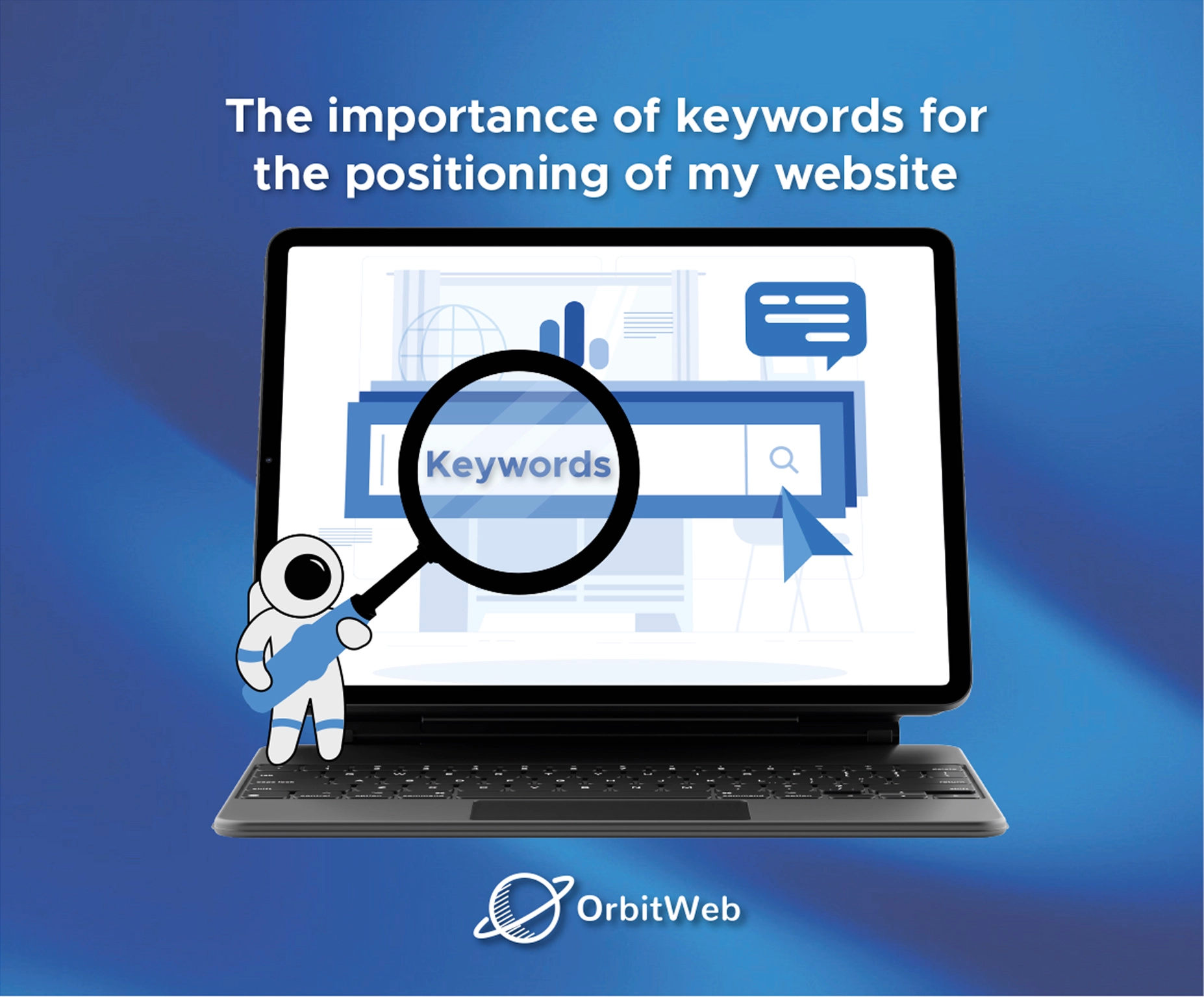Blog: Why Keywords are Important and Central to Digital Marketing
Rigo Guadron / July 20, 2021

When was the last time you searched for something?
How recent was the last search that you did to find some information? Maybe you were planning a trip, researching a product, or settling a bet on who played the bad guy in that movie.
The point is we rely on immediate access and answers every day. Sometimes multiple times of the day.
And this, my friend, is why keywords are so important and central to digital marketing.
The words you use when you search when you describe what you want are critical for understanding intent. Based on that intent, search engines adapt their results, and advertisers modify their ads to capture your attention.
SEO specialists sweat over the details of getting their page to rank highly because a number one ranking could deliver 35% of searches to that website.
Coming up with a keyword strategy is one of the most critical activities in marketing.
Let’s look at the importance of developing a keyword strategy.
1. Economically
Search engines provide the best source of visitors to your website. Optimizing your website has the best return of any marketing activity, as the results of relevant, consistent traffic last for years.
2. Relevancy
Using the right keywords creates relevance for your audience and connects to them as you are using their language.
3. Insights
You’ll know what your audience wants. Instead of passively adding words to a website, researching keywords gives you an insight into the needs and the trends to engage with visitors, followers, customers, and prospects.
Properly optimizing your website and using keywords in all of your marketing channels will yield visitors for years.
Why Keywords?
Author Tom Stoppard wrote a story about two minor characters in “Hamlet,” Rosencrantz and Guildenstern.
They’re trying to understand what’s happening in the story because they’re confused by the Shakespearean language.
“Words! Words! They’re all we have to go on!” Guildenstern cries in frustration.
Well, this beautifully sums up keyword research.
You see, words are our primary interface. We use words all the time to find content in Google, Netflix, Amazon, anywhere that allows you to search; you are either typing in your words or saying them.
Where we search is also increasing, we can now search from our smart cars, home assistants, smartphones, etc.
Want to know what else makes keywords important? Our last words.
Search Engines Utilize Past words
- Search query
- Past Search queries
- Preferences
- Location
- Device
- Time
Search engine algorithms take into account your past search history, your preferences, your location, your device, and the time.
Let’s look at an example; Netflix uses this data as well to present your recommendations. But words are at the core.
Words are the primary components of communication.
Keywords Increase
- Ranking
- Relevance
- Engagement
- Business objectives
Every marketing channel is made better when a marketer integrates keyword research throughout their entire marketing strategy.
In SEO, keywords are used to gain rankings for relevant searches. Using those words makes your page more relevant and keeps visitors engaged, which leads to more business.
In paid search, advertisers need to know the right keywords and how to bid on them to be successful and make money.
For content marketing, the key is content, which uses words—knowing the right words to engage your audience yields more sales and leads.
Email marketing utilizes words to get you to open the email and click.
For social media, if you want to engage, then you need to use the right words at the right time in the right context.
Intent:
I’m getting ready to buy a car, but I’m not telling you much if I search for the word car. It’s a very general term, and it could mean thousands of things. You don’t know if I’m interested in new or used, buying or leasing, and even the search results are all over the place. This is why looking at individual words, or very general words can be deceiving.
While the word ‘cars’ is searched for most of any word in the car category, it offers very little relevance. We honestly don’t know what the searcher means with this single-word search. It could be a BMW. It could be a local dealer.
The only way to get intent is to look for more words, so now we get the intent when someone searches for low-mileage used BMW in Springfield. We get the where, what, and the brand, and know that we can work with.
The more words used in a search phrase, the more intent that it communicates. You can use those words to optimize, label, and integrate into your content when you know the intent. It starts by making a seed list of search terms. A seed list is about 10 to 15 words or phrases that describe your business.
Think about these words from the standpoint of the searcher. What are they looking for? Then look at your list and see how the searches progress from simple to lengthy. The progression shows us how searchers may modify or adapt their search and refine their terms in order to get the results they need. The progression will also show you the stages of a searcher’s thinking. Start by asking, what non-branded searches bring people to my site? Then, do those searches lead to other searches? Here’s your assignment. Come up with a seed list of 15 to 20 non-branded keywords that you think people use to find your website. This is based on their need. How would people find you?
If you want to engage people, then you need to know what words they use, how they use them, and when they use them. Why is this important? Well if you have a business that needs to make money, then you need to know the keywords.